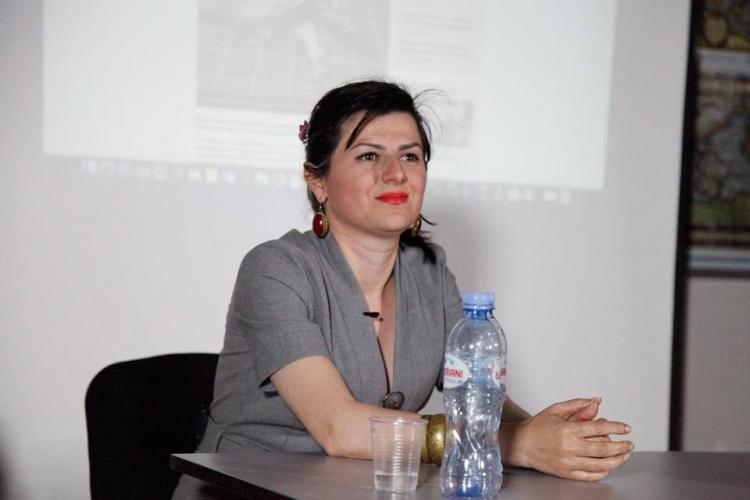Challenging patriarchal society
The right to choose your own friend
On 24 November, the ADAMI Media Prize for Cultural Diversity in Eastern Europe awarded the film Forbidden friendship the Adami Media Prize for Information. It is a story about the friendship of two Armenian and Azerbaijani women facing challenges over their right to choose a friend. One of the friends is Gunel Movlud. Growing up in Post-Soviet Azerbaijan, this has not been the only obstacle she has had to face in her life.
Forbidden friendship by Chai Khana:
Writing for peace and freedom
Gunel Movlud was born in 1981 in the Jabrail region of Azerbaijan. She was forced to flee her hometown in the Nagorny-Karabakh region in 1993 when war broke out with Armenia in a dispute over the ownership of the region. The conflict that has continued to this day. Movlud spent the next 5 years in a tent refugee camp in the Sabirabad region of Azerbaijan.
After losing her home and childhood because of the Karabakh conflict, she has worked actively to supports peace and human rights in Azerbaijan through her writings and journalism. This is not an easy task, however, in a country known to crack heavily down on freedom of speech and, according to Committee to Protect Journalists, had the biggest number of journalists imprisoned in Europe and Central Asia in 2015.
“In Azerbaijan, all mainstream media is controlled by the state” says Movlud, who has repeatedly experienced threats and persecution by the Azerbaijani Government because of her journalistic activities.
An unrelenting voice
A 2003 graduate in fine art from the Azerbaijan State University of Culture and Theatre, Movlud started her career as a journalist in 2004, working for the cultural publication Kino from 2004-2006. She worked for the youth newspaper Alma from 2006-2010, and went on as arts critic for the simsar.az website from 2011-2013.
In 2012, she started contributing as a freelancer to Azadliq, the Azeri-language section of Radio Free Europe/Radio Liberty, and in 2013, she joined Meydan TV as editor and writer.
Meydan is an independent online publication, which was created by Azerbaijani journalists in exile. The service features investigations into human rights and corruption in Azerbaijan, and is now based in Germany after being forced to close its Baku offices in December 2013 after threats to its staff. Movlud still writes and blogs for Meydan.
Also a highly regarded writer and poet, Mövlud has published three books of poetry; Darkness and Us (2004), 5 XL (2011) and Response to the Late Afternoon (2013). Her poetry has been translated into English and published on-line. She has been interviewed on and spoken of her literary works including a TEDXBaku presentation in 2011.
As a translator, Mövlud has published three books from Russian to Azeri: Viktor Pelevin’s Oman Ra, Gabriel Garcia Marquez’s One Hundred Years of Solitude Stendhal’s Red and Black.
Virginity tests and single motherhood
The main topics of Gunel Movlud’s writings and articles are democracy, human rights, gender equality, rights of minorities, peacekeeping and human values. They include investigations into women’s issues, on the conflict with Armenia, the imprisonment of fellow journalist, Khadija Ismayilova, and refugees. Her articles on virginity tests and single motherhood in Azerbaijan are among those she has written for the BBC Azeri service. Her writings challenging Azerbaijan’s largely Muslim and patriarchal society, as well as her conciliatory approach toward Armenians in the context of the Nagorny-Karabakh war has brought her to the attention of the authorities as ‘an enemy of the people’. She says:
“During the escalation of the situation on the front line, I have expressed my civil opinion to cease the senseless bloodshed. I have done numerous interviews with Armenians, who have lost their homes in Baku and Nakhichevani due to the Karabakh conflict, hoping to promote peaceful dialogue between people - victims of conflict between the warring nations, to show my people that, at war, both sides lose, sacrifice and suffer. This is provoking the Government”
Her interviews with various society figures are popular among readers. In September of 2015, the regional project reporting on taboo topics of the Caucasus region, was begun under her coordination. The series are being prepared in collaboration with journalists from Armenia and Georgia and are issued by Azerbaijani BBC Service. Due to the increased interest in the articles, they were reprinted several times by Russian and Ukrainian versions of the broadcasting station.
These articles were also published in the Armenian press. They were uploaded to the online website www.epress.am and caused quite an ambiguous response among societies of both countries. Some branded her a traitor that has sold her homeland, while others thanked for bold and correct civil position.
Gunel left Azerbaijan in 2013 for Germany and for the last two years, she lived in Tbilisi in Georgia. In October 2015, due to Gunel’s activities, Azerbaijani authorities arrested two of her brothers in different cities on false charges of carrying and dealing drugs. Many of her relatives are struggling to keep their jobs.
During her residency in Norway, she will continue her work, and plans to produce articles and a documentary and then a book on her experiences as a childhood refugee.
The ADAMI Media Prize
The ADAMI Media Prize was created to encourage audio-visual journalists and media professionals in the EU Eastern Partnership countries (Armenia, Azerbaijan, Belarus, Georgia, Moldova and Ukraine) to cover themes of migration, integration and cultural diversity.
Latest news
-
23.04.24
-
18.04.24
-
04.04.24
-
26.03.24
-
21.03.24







